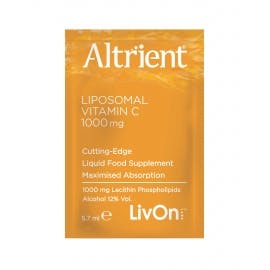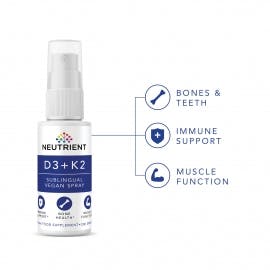Autumn Beauty Tips From Dawn Till Dusk…
Do autumn leaves, long dark evenings and crisp cool days see you hiding under a blanket on the sofa? It’s time to find ways to embrace autumn with all its glorious colours, comfort foods and cosy jumpers. But let us also remember how the changing season could affect our skin, mood and energy levels. Here are our top beauty and health tips to help you maintain a natural radiance right up to Christmas!
Glowing Autumn Skin
As the weather turns cooler, being exposed to harsh cold air then retreating inside to centrally heated rooms could irritate problem skin. You may find redness or dry patches become worse at this time of the year, here’s how to deal with them…
- Moisturisers – it may be tempting to slap on heavy moisturiser but if you apply too much, it may act as a barrier and prevent skin from properly breathing. This may lead to a dull complexion and outbreaks of spots and pimples. Switch to a natural, light and gentle moisturiser containing nourishing ingredients such as shea butter, aloe vera and coconut oil.
- Foundation – don’t smother your skin with heavy foundation which may not allow it to breathe properly. You might find that a light mineral powder is less congesting for your winter skin. Don’t forget to always take off all your make-up before going to bed.
- Skin foods – what we eat significantly influences our skin health and the skin often reflects the health of our body on the inside. Plant-based foods tend to be higher in the fibre required for gut function and for the efficient elimination of gut toxins which could otherwise contribute to dull skin. Essential fats from oily fish, nuts and seeds may also help keep skin supple and free from blemishes.
- Super nutrients – B-vitamins, especially B2 and B3 are needed for the manufacture of new skin cells. A deficiency in vitamin B2 may lead to symptoms such as cracked lips and sores in the corner of the mouth. Vitamin C is a key nutrient for collagen formation which supports skin tone and elasticity. Both vitamin C and the B-vitamins are water-soluble and can’t be stored in the body, so we need a daily supply. Topping up these nutrient levels with liposomal Altrient C and B-Complex is a good tip for your autumn beauty regime. Finally, vitamin D contributes to the growth and repair of skin. Skin cells make vitamin D from sunlight so for those of us living in shortened daylight at this time of year, a supplement of liposomal vitamin D also makes sense in the winter months. According to the British Nutrition Foundation, it’s estimated that at least one in five in the UK are deficient in vitamin D(1).
Upbeat Mood
If you’ve ever noticed the lack of daylight and long dark evenings mean your mood plummets, then you’re not alone. Too little light is linked to lower levels of the brain’s happy hormones called serotonin and if your skin isn’t looking its best, this could also get you down. How about a pampering facial rich in vitamin C? When it’s applied topically to the skin, vitamin C is thought to help stimulate collagen formation. Vitamin C also helps to neutralise free radicals and oxidative stress caused by environmental pollutants and sun damage, which both contribute to skin ageing.
With crisp autumn days approaching it’s worth remembering that spending some time outdoors may help lift your mood and encourage a better sleep cycle and quality of sleep – good news if you are wanting to top up on beauty sleep! It’s tempting to hide indoors when the weather is unsettled but layer up, stride out and you could feel better for it!
Autumnal Energy
Time to resist the temptation of hibernation with these get up and glow autumn energy tips…
- Snack check - sugary snacks and processed foods tend to be lacking in essential nutrients and often contribute to blood sugar highs and lows which could lead to food cravings, energy slumps and difficulty concentrating. To help blood sugar management and provide a more sustainable supply of energy it’s a good idea to replace refined carbohydrates with wholegrain carbohydrates such as brown rice, brown bread, whole-wheat pasta, quinoa, lentils and pulses.
- Curb cravings - if you crave a sugar boost mid-afternoon then you could start to pre-empt this by eating a protein-rich snack. Good options include a handful of pumpkin seeds or walnuts, oatcake with salmon or a smoothie made with a spoonful of plant-protein powder (hemp, pea or rice protein powder).
- Caffeine cut - although caffeine may give you a great energy rush, this may be shortly followed by an impactful energy slump later in the day. To wean yourself off caffeine drinks (coffee, tea, hot chocolate and energy drinks) swap these with herbal teas, fruit teas or fizzy water with a splash of fruit juice.
- Keep hydrated - don’t forget water. Dehydration not only leads to dull, lacklustre skin but also may contribute to constipation, headaches and fatigue.
- Get moving - lack of exercise encourages a feeling of stagnation. Even if your schedule is jam-packed make time for exercise. If going to the gym several times a week is unrealistic then you could simply commit to a brisk ten-minute walk in your lunch break.
- Stress management – workplace stress is often unavoidable but learning to change your reaction to stress may help you feel less affected. Stress tends to up-regulate the body’s requirement for B-vitamins and often interferes with blood sugar balance. Yoga, meditation, tai chi and deep breathing exercises all help to dial down the stress response. Researchers in one study found that supplementing a B-vitamin complex to people under workplace stress indicated results that suggested this supplement could contribute value when looking for ways to help manage resistance to stress (2).
By adopting the lifestyle measures suggested above, you could start to embrace the changing season with glowing skin, optimum energy and a lighter mood.
Susie Debice – BSc Hons Dip ION Food Scientist and Nutritional Therapist
References
- Andrew Scholey, Jenny Lloyd, Jo Spong, Stephen Myers, Luke A. Downey. The effect of 90-day administration of a high dose vitamin B‐complex on work stress. Human Psychopharmacology. Vol 26, Iss 7 Oct 2011. P 470-476



.jpg?auto=format&q=45&w=262&trim=auto)
.jpg?auto=format&q=45&w=262&trim=auto)
